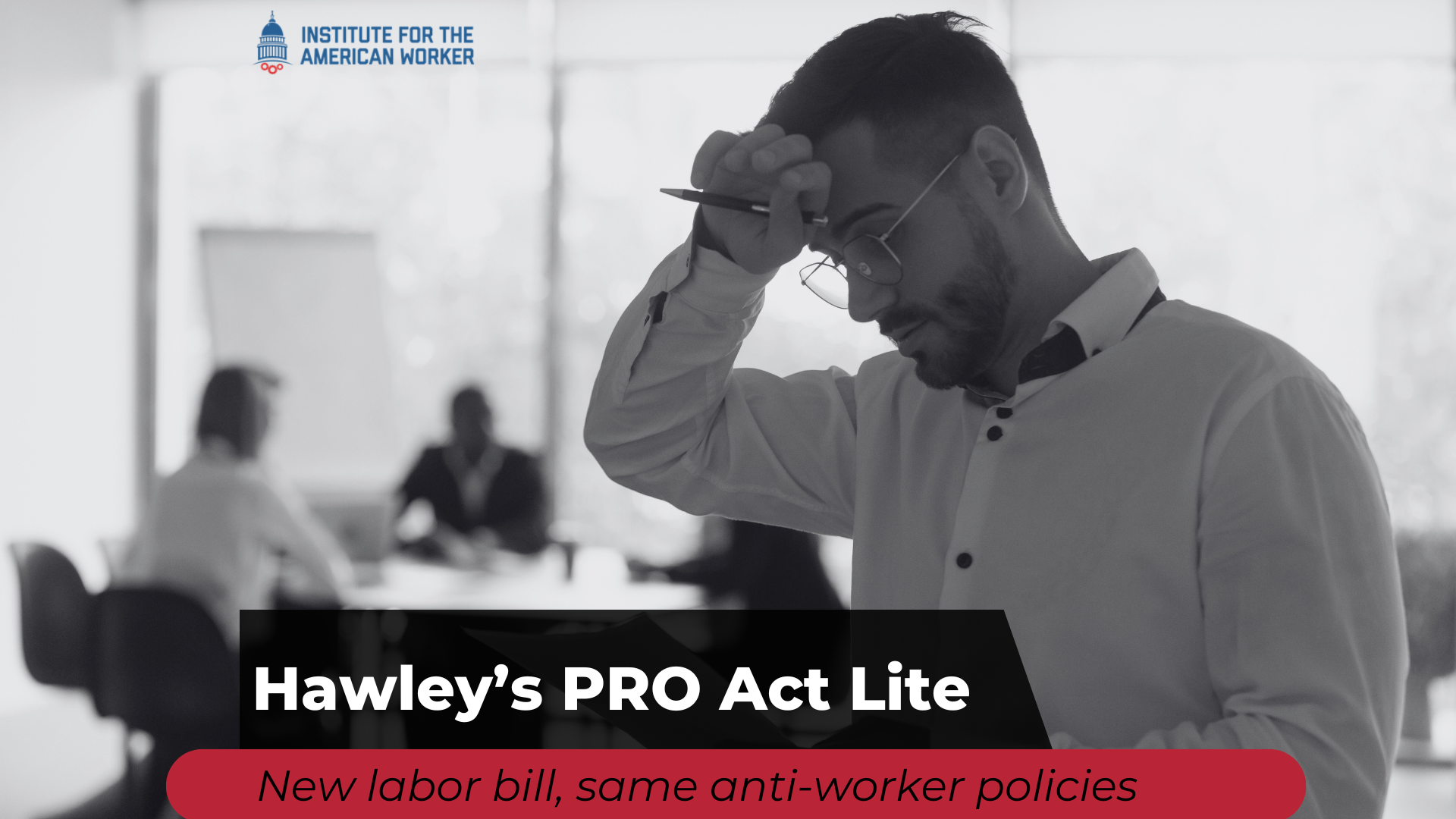Posts tagged union representation
Why California Teachers Are Walking Away from Their Union
October 16, 2025 // Yes, you read that right. The nation’s biggest teachers’ union circulated classroom content that literally wiped Israel off the map and connected educators to sources that excuse terrorism. When caught, the NEA quietly deleted the materials. No apology. No accountability. Just silence. That kind of moral blindness is not confined to Washington. In California, it has become a way of life.

Caregivers protest union effort to skim home helpers’ pay
April 30, 2025 // The SEIU quietly swept 60,000 home-based caregivers into its ranks in 2005, assisted by a mechanism established under Gov. Jennifer Granholm. Caregivers who did not consent to withdrawals saw the union take money from their paychecks in a practice the Mackinac Center for Public Policy dubbed a dues skim. Home caregivers enjoyed protection from the dues skim for 11 years after the state ended the practice. Last fall, lawmakers reestablished the legal mechanism by which the union could enroll caregivers as members and collect dues. It's not as easy for unions to take that money, however, thanks to the U.S. Supreme Court's 2016 Janus v. AFSCME ruling, which protects public sector employees from being required to join a union as a condition of employment.

LETTER: Congress must reject proposed job-killing labor legislation
April 20, 2025 // However, a new threat to Kansas business owners has emerged in the form of a legislative framework that the Institute for the American Worker has dubbed the “PRO Act Lite,” modeled after the failed policies of Senator Bernie Sanders and other progressive lawmakers. While it may come with a new label, the substance remains the same. This proposal would drive up labor costs, stifle economic opportunity, and make it significantly harder for employers to create jobs.
CDW Urges Support for Worker Enfranchisement Act
April 16, 2025 // “Current labor law allows unions to become the exclusive bargaining representative of a workforce with bare minimum support from the workers. This is possible, because there is no participation rate requirement in the National Labor Relations Act. The Worker Enfranchisement Act would fix this oversight by requiring at least two-thirds of a potential bargaining unit participate in a representation election before the results can be certified. By requiring real participation from the impacted workforce, Congress can guarantee that workers’ desires on union representation are both heard and carried out. Unions would have to have true majority support before they can obtain exclusive representation over those workers. CDW urges Congress to pass this common-sense bill.”

Florida Continues to Lead the Nation on Labor Reform and Worker Freedom
December 10, 2024 // In 2023, Gov. DeSantis led the effort on a transparency bill (SB 256), otherwise known as the Teachers’ Bill of Rights. Our organization, Workers for Opportunity, was proud to help support this legislation through testimony before the Florida Legislature, newspaper essays helping explain the legislation and other advocacy efforts. We also utilized educational materials provided by The James Madison Institute.
Petitions for union representation doubled under Biden’s presidency, first increase since 1970s
October 17, 2024 // There has been a doubling of petitions by workers to have union representation during President Joe Biden's administration, according to figures released Tuesday by the National Labor Relations Board. There were 3,286 petitions filed with the government in fiscal 2024, up from 1,638 in 2021. This marks the first increase in unionization petitions during a presidential term since Gerald Ford's administration, which ended 48 years ago.
Commentary: The NLRB’s “Laboratory Conditions” Are Overdue for Inspection
October 7, 2024 // In several lines of precedent since the passage of the 1947 Taft-Hartley amendments, courts have ignored or glossed over this textual problem and have allowed the NLRB to police campaign misconduct quite closely. Most relevant here is the doctrine first announced in General Shoe Corporation. The Shoe Workers Union objected to its election loss at a plant in Pulaski, Tennessee, and charged the employer with co-extensive unfair labor practices. The employer’s president was shown to have lectured employees personally about their union support. Finding that no unfair labor practice had been proven, the Board nevertheless set aside the Union’s loss,
Commentary Is Big Labor Reducing Worker Wages, Opportunities for Growth?
September 3, 2024 // But the Biden-Harris administration’s embrace of Big Labor—as in big national labor organizations, as opposed to small, local unions—actually hasn’t helped workers as unionized workers’ wages have fallen behind the wages of nonunion workers over the past four years. Unlike small local unions that are in better positions to represent the unique needs of their members and that may even have productive relationships with management, the Big Labor movement is increasingly putting politics, power, and one-size-fits-all policies above the personal well-being of many workers.
Op-Ed: Public Sector Unions Should Only Speak for Their Members
September 3, 2024 //
CALIFORNIA: Charter School Teachers Vote To Unionize (Commentary)
June 25, 2024 // Private sector employees have been most affected by these losses. While only 6% of these employees are represented by unions, 32.5% of their public-sector counterparts have these protections. One of the ways that right-wing politicians have tried to reduce these rates is to transfer education funds from public schools to privately run schools whose workers are not represented by unions. Since California voted not to allow school vouchers in 2000, Privatizer’s primary way has been through charter schools. This has been particularly true in Los Angeles which has more students in charter schools than any city in the country. Unions do not represent employees in most of these charter schools, but that is starting to change.
